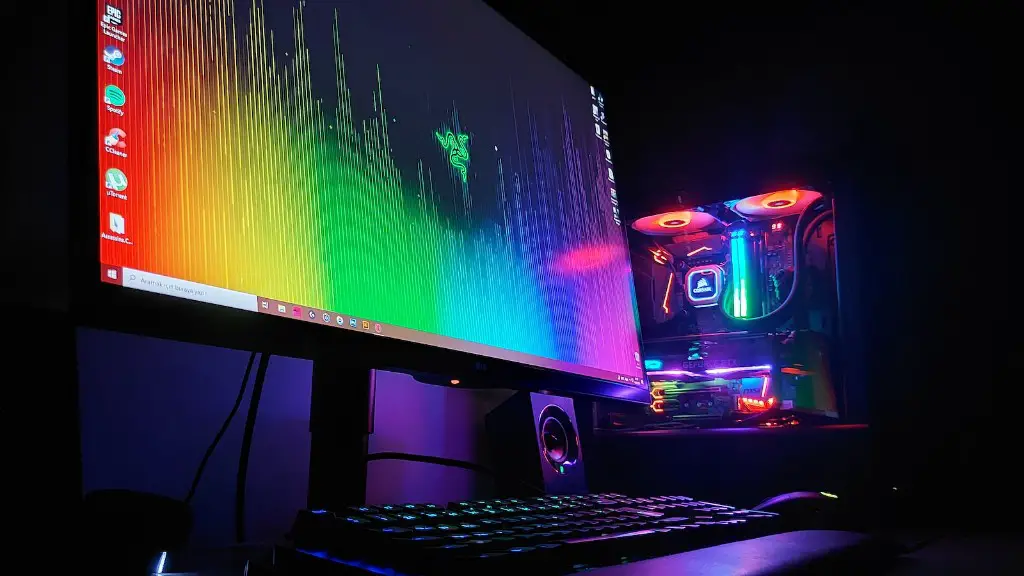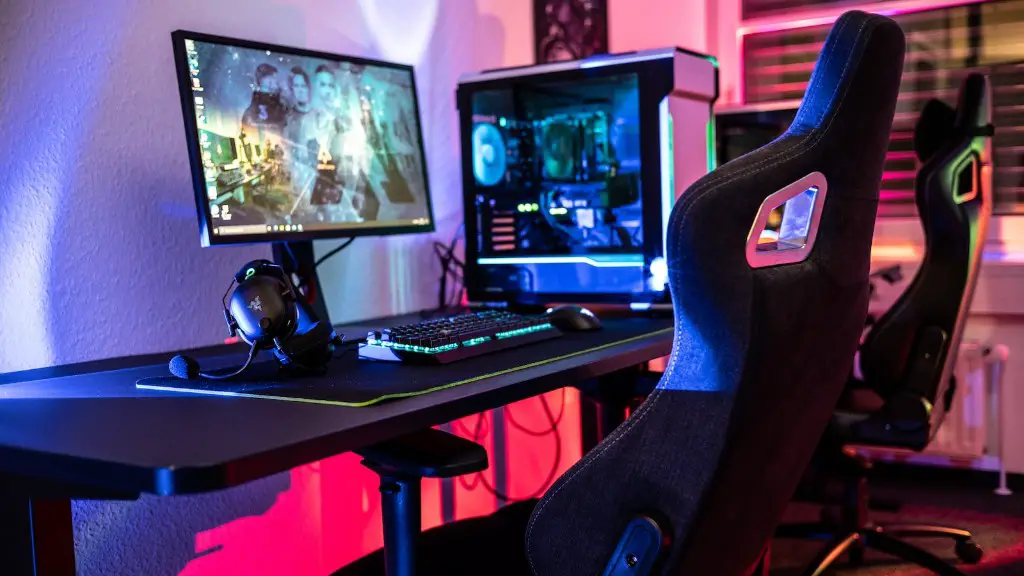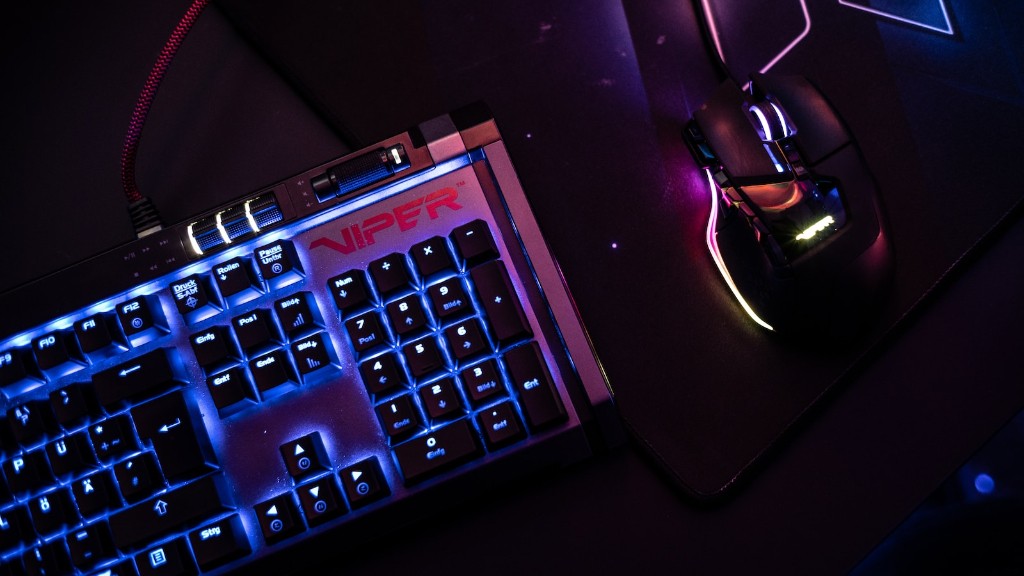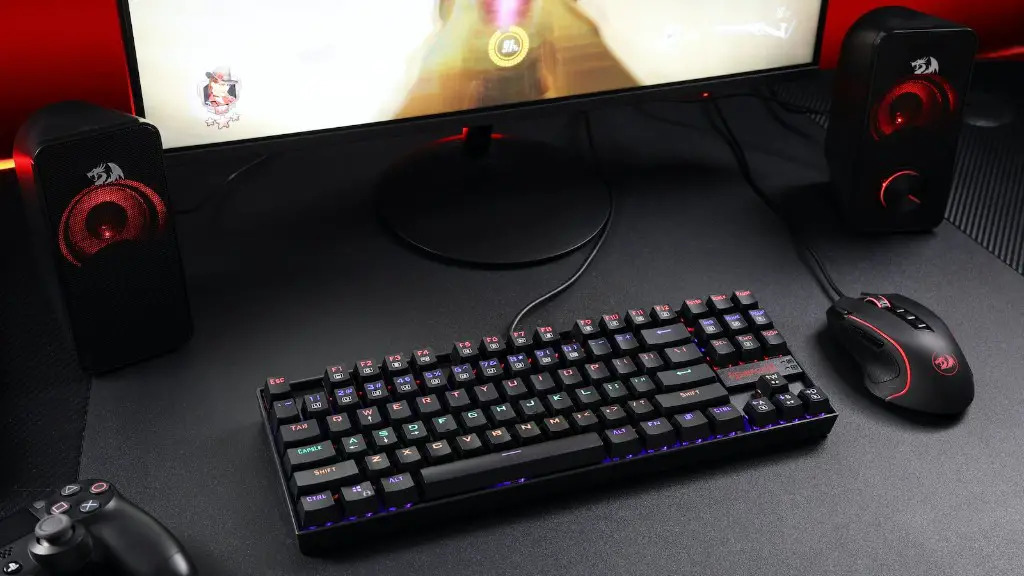Can a Regular PC Be Used as a Gaming PC?
Using a regular PC as a gaming PC is definitely possible. With the right hardware and software, it does make for a viable gaming setup. However, there are some key elements to consider before investing in a regular PC for gaming. This includes hardware capabilities, software performance and whether or not the components will be compatible with one another.
On the hardware side, gamers need to pay extra close attention to their PC components. The processor, GPU, RAM and storage all need to be highly capable and optimized to deliver the best performance while gaming. Most regular PCs might have basic versions of these components which might be acceptable, but they’re not designed to handle gaming workloads. Some key hardware elements that need to be taken into careful consideration include overclocking, cooling system, PSU and BIOS stability.
On the software side, gamers have to pay attention to the required specs and processes of their chosen game. Most games will require specific versions or combinations of drivers, libraries and gaming utilities to maximize performance. The selection and implementation of the right components can help to minimize lag and maximize immersion. Some gamers might find it quicker and more efficient to install pre-installed drivers, as opposed to actively searching for drivers and utilities on their own.
Finally, when it comes to ensuring the PC components are compatible, gamers need to research carefully which decisions are the best for their build. Compatibility is not only dependent on the game but also on the PC components themselves. A great tool to research compatibility between components is the PCBuilder, an efficient, user-friendly site which can help gamers to create the perfect setup for their gaming needs.
Overclocking
Overclocking is one of the key elements to consider when using a regular PC as a gaming PC, as this significantly influences the performance. To begin, the overclocking process itself is simple enough. First, users have to adjust the voltage, core speed and clock multiplier, this is to measures the steps of performance change.
Furthermore, users need to bear in mind that different motherboards and processors support different overclocking capacities. Overclocking your PC can be risky, with some components potentially not performing well or even failing Completely. This is why users need to understand the process before committing to any overclocking.
Once the settings are found to be compatible, users can start to adjust other settings such as memory timings, power limit control, thermal management and more. All of these settings are important for smoothing out performance. There are other tools users can use to further optimize the performance of theirPC, for example tweaking settings for specific games.
Finally, it is essential to stress test your computer after overclocking to make sure everything is working as desired. If you cannot perform the stress test, then a pre-built gaming rig might be the safer option.
Cooling System
Another necessary element to consider with a regular PC is the cooling system. The cooling system plays an important role in both ensuring the components of the PC run at optimum settings and also in increasing their lifespan.
A good cooling system should manage the temperature and the rate of heat dissipation. It should also be user-friendly, straightforward, and low noise. Moreover, it should be able to manage the thermal output from processor, graphics card, and any other components that generate heat.
Most common cooling solutions include fans, liquid cooling solutions, custom cooling solutions and even software solutions. Fans are the most common as they are easy to install, while liquidcooling solutions are favored by more advanced users who understand the installation process.
Custom cooling solutions are also well-liked by those looking for extreme performance. Software solutions can help manage the temperature of the components, however this is usually not necessary unless the cooling solutions are inadequate.
Finally, users should bear in mind that consistent maintenance of the cooling system is necessary if they want their components to perform optimally while gaming. It is wise to keep the dust levels low and clean any fans, as well as reapplying thermal compound when necessary.
Power Supply Unit
The choice of power supply unit (PSU) is essential for any gaming rig, and it is just as important when building a regular PC for gaming. A good PSU should not only be efficient, but also reliable, with all the necessary connecting needs.
Choosing the right PSUs is an important part of the building process and the power supply should be the last thing to be installed. That way the electrical fittings of the other components will be completed by the time the PSU is ready, making it easier to install.
The rating of the PSU is also important. It is important to remember that often the advertised power ratings on PSUs can be misleading, as they take power from the wall and assume maximum wattage use which is rarely the case. A high-end PSU with too much wattage can be overkill and unfair on your wallet, yet a PSU with too little wattage could cause stability problems leaving your components and safety at risk.
Finally, the form factor is something to bear in mind. ATX 12V is the most common form factor for PSUs, but other form factors can be used depending on the size of your PC case and motherboard.
BIOS Stability and Optimization
Having the right BIOS settings is often a challenging and overlooked element when it comes to optimising a PC for gaming. The BIOS is a complex system and can be daunting to amateur users, however the BIOS offers the opportunity for users to make informed decisions about their PCs performance and stability.
The BIOS, or Basic Input/Output System, is the first code that runs when a computer is powered up. It helps to control the components of an operating system. Making use of the BIOS, gamers can set up their PC to better suit their gaming needs. Setting the correct frequency timings, voltage, and system modes can all help to improve performance.
Finally, it is important to note that while referencing online suggestions or using an overclocking program can be helpful, users should research each setting themselves, inputting the correct values.
Compatibility
For any hardware to function correctly together, it needs to be compatible with each other. With several options available, research is key for finding the best components for your gaming PC. The selection of components and the compatibility of the components needs to be carefully researched.
Often, manufacturers will list the best combination of components for their platform but this is a good starting point for more in-depth research. It is essential to consider the necessary characteristics for the components, such as size, type, connections, and cooling requirements.
A powerful PC comes down to the number of factors. If a component isn’t compatible with another, it can seriously hinder the performance and stability of the overall gaming PC. Therefore, it is wise to double check that all components used in the build are compatible with one another.
Further to this, users can read reviews and feedback from other buyers, as well as ask for advice before making a decision. This is especially pertinent with components such as the PSU, RAM, processor and graphics card.
Software Performance
The performance of any software or game is strongly dependent on the capabilities of the PC components. Before engaging in any game, users should take into account the game’s system requirements and adjust accordingly.
The game requirements will help to identify the ideal hardware components for the game. Other software, such as drivers and libraries, should also be considered for optimized performance. This includes audio and graphic drivers, audio/video codecs, and gaming utility programs.
If you are using a pre-built gaming rig, it can be quicker and simpler to install pre-installed drivers. On top of this, it is important to check window updates or run benchmark tests with the system to get an idea of the game’s performance.
If you are building your own PC, then you might be best off installing each component individually and researching the best settings for each component. Finding the optimal settings for each component is essential for ensuring smooth gaming performance.



